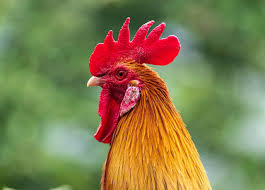Tylvalosin Tartrate
Name:
Tylvalosin Tartrate
Common Capacity:
- 100g/bag
- 500g/bag
- 1000g/bag (1kg/bag)
Common Concentration:
- 10%
- 20%
- 50%
Applicable Animals:
Tylvalosin Tartrate is a novel macrolide antibiotic with significant antibacterial activity against Mycoplasma, Gram-positive bacteria (e.g., Staphylococcus, Streptococcus), and some Gram-negative bacteria (e.g., Pasteurella, E. coli). It is rapidly absorbed in animals, has good tissue penetration, and achieves high drug concentrations especially in the respiratory tract, making it an ideal choice for the treatment and prevention of respiratory diseases in livestock and poultry.
Applicable Animals in Global Animal Husbandry:
- Poultry (Chickens, Turkeys): Primarily used for the treatment and prevention of chronic respiratory disease (CRD) caused by Mycoplasma, infectious coryza, and airsacculitis, rhinitis, enteritis caused by sensitive bacteria. It is effective in controlling Mycoplasma synoviae and Mycoplasma gallisepticum infections in chickens.
- Pigs: Primarily used for the treatment and prevention of porcine mycoplasmal pneumonia (enzootic pneumonia), porcine proliferative enteropathy (caused by Lawsonia intracellularis), bacterial pneumonia in pigs, and other digestive and respiratory infections caused by sensitive bacteria. It has a positive impact on the growth performance of piglets and growing-finishing pigs.
Usage and Dosage:
Tylvalosin Tartrate is usually administered as a water-soluble powder or premix through drinking water or mixed with feed. The dosage should be determined based on product concentration, animal species, body weight, and severity of the condition.
Administration via Drinking Water (for 10% concentration product):
- Poultry (Chickens, Turkeys):
- For Treatment: Add 25 mg of active ingredient per liter of drinking water (i.e., 250g of 10% product per ton of water). For 3-5 consecutive days.
- Calculated by body weight: Poultry should be orally administered 25 mg Tylvalosin per kg body weight.
- Pigs:
- For Treatment: Add 25-50 mg of active ingredient per liter of drinking water (i.e., 250-500g of 10% product per ton of water). For 3-5 consecutive days.
- Calculated by body weight: Pigs should be orally administered 25-50 mg Tylvalosin per kg body weight.
Administration via Mixed Feed (for 10% concentration product):
- Poultry (Chickens, Turkeys):
- For Treatment: Add 50-100g of active ingredient per 1000kg of feed (i.e., 500-1000g of 10% product per ton of feed). For 5-7 consecutive days.
- Pigs:
- For Treatment: Add 50-100g of active ingredient per 1000kg of feed (i.e., 500-1000g of 10% product per ton of feed). For 7-14 consecutive days.
- For Prevention of Porcine Proliferative Enteropathy: Add 30-50g of active ingredient per 1000kg of feed, for continuous administration.
Dosage by Growth Stage:
- Chicks/Broilers: Used for the prevention and control of Mycoplasma and bacterial respiratory infections, and to improve growth performance.
- Breeding Hens: Used for Mycoplasma eradication and control of vertical transmission.
- Piglets/Nursery Pigs: Used for the prevention and treatment of porcine proliferative enteropathy, Mycoplasma pneumonia, and bacterial respiratory infections, reducing diseases caused by weaning stress.
- Growing-Finishing Pigs: Used for the control of chronic respiratory diseases and to improve feed conversion rate.
Applicable Diseases and Symptoms:
Tylvalosin Tartrate is primarily used for the treatment of diseases caused by sensitive bacteria and Mycoplasma:
- Poultry:
- Respiratory System Diseases: Chicken chronic respiratory disease (CRD, caused by Mycoplasma gallisepticum, Mycoplasma synoviae), infectious coryza, airsacculitis.
- Intestinal Diseases: Necrotic enteritis.
- Pigs:
- Respiratory System Diseases: Porcine mycoplasmal pneumonia (enzootic pneumonia, caused by Mycoplasma hyopneumoniae).
- Digestive System Diseases: Porcine proliferative enteropathy (ileitis, caused by Lawsonia intracellularis, characterized by diarrhea, stunted growth, emaciation).
- Other Bacterial Infections: Sensitive Gram-positive bacteria and some Gram-negative bacterial infections.
Precautions:
- Resistance: Long-term or improper use may lead to drug resistance; use under veterinary guidance is recommended.
- Drug Interactions: Avoid concomitant use with fluoroquinolones, other macrolide antibiotics (e.g., Tylosin, Tilmicosin) to avoid antagonism or increased toxicity.
- Incompatibility: Do not use concomitantly with ionophore anticoccidials (e.g., Monensin, Salinomycin, Methylsalinomycin), as this may increase the risk of animal poisoning, leading to arrhythmias, heart failure, etc.
- Withdrawal Period: Strict adherence to the product’s specified withdrawal period is necessary to ensure drug residues in animal products (meat, eggs) comply with food safety standards.
- Chickens: 3 days
- Turkeys: 5 days
- Pigs: 3 days
- Storage: Store sealed in a cool, dry place, away from direct sunlight. Dissolved solutions should be used within 24 hours.
Contraindications:
- Contraindicated in animals with a known hypersensitivity to macrolide antibiotics.
- Strictly contraindicated for poultry in combination with anticoccidials such as Monensin, Salinomycin, Methylsalinomycin, Maduramicin.
- Use with caution in laying hens, as it may affect egg production performance.
Post-Administration Care:
- Observe Animal Status: Closely observe the animal’s mental state, feed and water intake, respiratory condition, and fecal consistency during and after medication to assess treatment efficacy and detect any adverse reactions.
- Improve Husbandry Environment: Maintain clean, hygienic, dry, and well-ventilated pens to reduce stress and aid in animal recovery.
- Biosecurity Management: Enhance isolation and disinfection of sick animals to prevent disease spread.
- Supportive Therapy: For severely ill animals or those with complications, combine with other symptomatic and supportive therapies, such as vitamin supplementation, electrolytes, and antipyretics.
- Withdrawal Period Enforcement: Strictly record medication administration and discontinuation times to ensure that the animal is marketed only after the specified withdrawal period.
Applicable Animals
Animal species suitable for this veterinary medication

